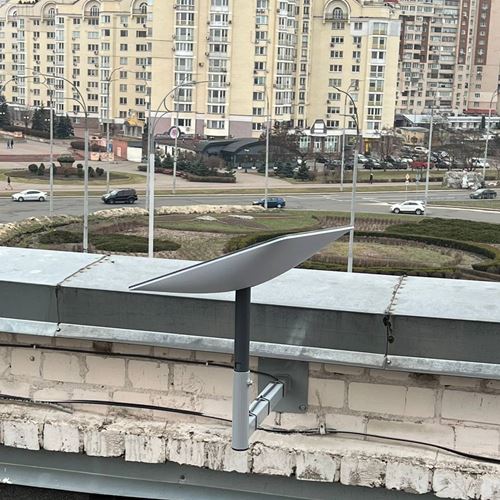NetHope grants to three international non-governmental organisations (INGOs) come at a time when needs for reliable communications in Ukraine is as critical as ever. Frequent power disruptions and attacks on the communication infrastructure increasingly hamper the coordination and delivery of humanitarian activities and communications.
‘In DRC, we are of course proud to be selected among such a small group of NGOs - and we are pleased to share this good news on 8 March 2023, International Women’s Day, this year promoting the theme ‘DigitALL: Innovation and technology for gender equality’ being a key focus area of DRC,’ says Steffen Kølbek, DRC Global Head of IT:
‘The NetHope grant for use in Ukraine enables us to immediately kickstart the process of setting up Starlink connectivity at key locations. The first five Starlink modems are in place and nine more are underway. These are suitable to the specific situation in Ukraine that is vulnerable and unpredictable, in that they are mobile, use latest technologies, and can run on independent power supplies. This will benefit our colleagues, our operation and the women and men, girls and boys whom we are in Ukraine to serve.’
Hours, and in some instances days, without electricity and internet has become the reality in Ukraine. Civilian infrastructure being an Achilles heel to the basic functionalities of modern society, is increasingly targeted over the past year, with attacks in power stations and grids leaving millions of people in Ukraine affected by frequent lack of access to electricity, water, heating, and communication networks including internet.
’Our colleagues in Ukraine have struggled to ensure reliable connectivity and communications means for a long time. The Starlink RV modems that DRC are buying are basically portable Internet connections. They’re built for mobile homes (so-called Recreational Vehicles, also known as RVs) and deliver high-speed, stabile and affordable internet,’ explains Anders Duedahl, DRC IT Project Manager engaged in the NetHope-funded project:
‘These Starlinks RVs are high tech solutions suitable as well for many of the contexts and conflict or post-conflict areas where humanitarian organisations like DRC are working to support people affected by displacement. They can for example deliver internet at a DRC office or field locations where this previously has been unreliable or even completely unavailable.’
As a network organisation constituted by many larger INGOs, NetHope ‘helps nonprofits effectively address the world’s most pressing challenges through collaboration, collective action and the smarter use of technology.’ DRC will use the grant from NetHope to establish internet connectivity in locations around Ukraine such as Kyiv, Mykolaiv, Merefa, Chernihiv, Chernivtsi, Lviv, and Dnipro.
Digitalisation is an organisational principle in DRC’s 2025 Global Strategy and the initiative piloted in Ukraine spearheads the commitment to increase the ability to cultivate digital opportunities in high-quality interventions that add value for displaced communities.
‘The grant opens the door for DRC to pursue a new approach in Ukraine with state-of-the-art technology for electricity grid independent access. This is in line with DRC’s global 2025 strategy and new initiatives that pave the way for digitalisation, innovation, and enhanced use of new technologies. We also foresee that this set-up using grid-independent internet set-ups will play a key role in relation to DRC activities around humanitarian mine action, legal aid services, and delivery of emergency aid,’ says DRC’s Steffen Kølbek.
In addition to introducing new internet technology in Ukraine, DRC plans to roll out similar solutions in other operations, such as Nigeria where millions of people are cut off from power and internet.
#DigitALL
